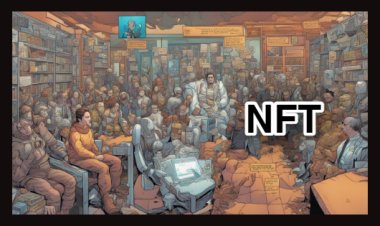Day Trading Psychology
Explore TradeFXP's insights into the critical role of psychology in day trading. Learn strategies for maintaining focus, managing risk, and staying disciplined.

Day-Trading Psychology
To make money, people day trade stocks. To succeed, people need the correct mentality to buy and sell. Happiness, sadness, and fear can impair performance. They must plan and make wise decisions. They must know their risk tolerance. They may succeed at day trading if they can achieve all of these!
The psychology of day traders is fascinating. To make money, day traders buy and sell stocks. Day traders need the appropriate mindset to make money. In this article TradeFxP investigates traders' emotions, decision-making, and risk tolerance.
Day traders' emotions affect their success. Decisions should be made calmly because emotions might lead to rash choices. Anxiety or anxiety can cause overtrading or stock holding those results in substantial losses. So, day trading success requires emotional control.
Day trading psychology is also about decision-making. Analysing market movements and finding opportunities depending on the trader's plan. A well-planned strategy should contain entry and exit points, risk management, and a realistic profit goal. A trader can avoid impulsive decisions by following a solid strategy.
Finally, day trading psychology requires risk tolerance. Day traders must tolerate losses and adapt their strategy. Traders with high-risk tolerance are willing to take bigger chances to gain great profits. If mismanaged, it can cause major losses. Yet, a trader with a low-risk tolerance wants fewer, safer trades. A day trading strategy that minimizes losses requires knowing one's risk tolerance.
Day trading emotions
Day trading is stock trading for profit. It causes excitement, worry, and anxiety, making it difficult. These emotions can hinder decision-making. Traders can succeed if they regulate their emotions and pay attention to how they feel. To avoid losing money, people must be cautious. Day traders must understand emotions to succeed.
Day trading is risky and needs expertise, knowledge, and mental toughness. Day trading's emotional hurdles are attracting psychologists. Day trading requires emotional intelligence. Day traders must control their emotions and adapt to market conditions to make informed decisions and profit.
Day traders often feel excited, exhilarated, scared, and anxious. These powerful emotions might obscure judgment and cause rash behaviours that hurt traders. Day trading demands accurate pattern and trend interpretation, making emotional awareness crucial. Traders should consider how they feel when making financial decisions. Day traders can make good decisions by monitoring their emotions.
Day traders must understand their emotions and how they affect trading results. Self-awareness, emotional management, and mental resilience are needed. Traders must control their emotions, focus, and ignore distractions. They can avoid costly impulsive actions by doing so. Day traders who acquire emotional control will make better decisions and succeed longer.
Finally, day trading success depends on understanding emotions. Day traders need emotional self-awareness, regulation, and resilience. Traders may protect their investments and succeed by focusing on managing emotions, and making informed decisions. Day traders must understand and manage their emotions.
Day Trading and Greed/Fear
Day traders buy and sell stocks or money in one day to make money. Yet, feelings like wanting more money or being afraid of losing money can lead to unwise decisions. They must manage these emotions and strategize when to buy and sell. Take breaks and learn from mistakes. Day trading is possible if they do all this!
Day trading is a popular way to profit from daily market swings by buying and selling financial products. Day trading psychology is difficult and requires a full understanding of how traders control their emotions when making judgments. Day traders struggle with greed and fear. Greed and fear drive trading decisions.
Greed is a strong desire for profit, while fear is apprehension over losing money. These two emotions can overpower traders' decision-making. Greed may cause traders to take risks, exceed their limits, and make bad transactions, while fear may cause them to avoid trades, trigger a fight or flight reaction, and miss out on profitable chances. So, day traders must understand and control these emotions to prevent making bad decisions that could result in large losses.
Day trading demands discipline and emotional intelligence to manage greed and anxiety. Traders require an entry, exit, and stop-loss plan. Stick to your goal and don't chase earnings, which can hurt your account. They should also avoid trading when agitated or tired, which can impair judgment. Instead, traders should take breaks, evaluate their performance, and study their trade logs for patterns, strengths, and shortcomings. Mastering greed and fear control reduces risk and improves day trading success.
In conclusion, day traders must control their emotions to make smart, profitable selections. Day trading success requires controlling greed and fear. Traders must understand their emotional triggers, regulate their impulses, and have a trading plan. Traders must also avoid distractions, track performance, and learn from mistakes. Day traders can achieve financial success with patience, discipline, and risk control.
Trade Discipline
Day trading is enjoyable but requires focus and moves quickly. Maintaining your plan despite your emotions is difficult. Follow your plan or lose money. Day trading requires a sound plan and perseverance. To be good at it, you need to practice and be patient.
Day trading—buying and selling financial products numerous times a day—is popular. Traders find it exciting and demanding. Day trading's fast-paced, high-pressure nature presents psychological issues. Day traders struggle with trade discipline.
Day trading requires trade execution discipline. Departing from a trading plan can lead to large losses that hurt long-term profitability. Day traders struggle with emotions, which can obscure their judgment and ruin their trading approach. For instance, traders may want to take rapid profits and leave a trade early or hang onto a losing position hoping it would turn around. This is not disciplined trade execution.
Day traders need an entry and exit strategy, risk management, and profit targets to succeed. Long-term trading success requires planning and discipline. To avoid emotional decisions, traders must define rules and follow them. Even in difficult markets, they must follow their plan. Trading discipline takes time and patience, but it can separate successful traders from others who struggle to earn consistent gains.
Day traders must be disciplined when trading. Emotional trading can cause major losses that hurt long-term profitability. Day traders must follow a disciplined trading plan to win. Day traders can implement their plans in volatile markets with patience and practice. Effective day traders recognize the value of trading discipline and incorporate it into their technique.
Trading Mindset Success
Disciplined day traders follow stringent guidelines. Day traders must remain calm under pressure. Even when things go wrong, they should strive to improve. Day trading involves purchasing and selling stocks to profit from short-term price swings. Day trading involves concentration, self-control, and speed. Day traders need a winning mindset.
Understanding discipline is the first step to trading success. Day traders need market discipline. This requires tight trade entry and exit laws. Effective day traders are patient and consistent, avoiding emotional decisions and market swings. Disciplined traders adhere to their plans even when they lose transactions, avoiding excessive risks.
Managing emotions is the second step to trading success. Day traders must keep their cool under pressure. Emotional intelligence and emotion management is needed. Successful traders can handle setbacks without panicking. They can also stay upbeat and focused during protracted market turmoil.
A growth attitude is a third and last step to successful trading. A growth mindset holds that hard work and devotion can develop skills. Day traders with a growth mindset see the market as a learning experience. They view losses as learning opportunities and strive to improve as traders. Day traders can develop curiosity, openness, and resilience with a growth mindset.
We hope this article may have helped you understand the forex market and trading. It is important that in this era of uncertainty, we all need a side hustle and income. Trading Forex is the best that it is. Please don't ever think of trading as gambling. Everyone can sing, but only a few can SING. It is a calling. For all those who want to make money in Forex trading without doing the deed of strenuous trading - CLICK HERE.
Happy Trading
To read more interesting articles CLICK HERE
Why do you need to be with TradeFxP? CLICK HERE
To join our Hunter AutoBot Trading Program CLICK HERE
All About TradeFxP's Hunter Ai EA Autobot CLICK HERE



 admin
admin 










